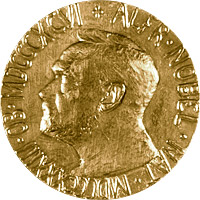In the reasons for the award committee, it is stated that LaCalzio is "the author of departures, poetic adventures and sensual ecstasy, an explorer of humanity beyond and below the dominant civilization" * He wrote mainly about the plight of people in the alienated big cities

Jean-Marie Gustave LaCalzio is the winner of the Nobel Prize for Literature for 2008. The reasons for the prize committee state that LaCalzio is "the writer of departures, poetic adventures and sensual ecstasy, the researcher of humanity beyond and below the dominant civilization."
LeCalzio was born on April 13, 1940 in Nice, but both of his parents had a strong connection with the former French colony of Mauritius which was conquered by the British in 1810. At the age of eight, LaCalzeau and his family went on a month-long trip to Nigeria, where his father was stationed as a doctor in World War II. During the journey he wrote two books - the long journey and Oradi noir, which contained a list of expected sequels.
After finishing high school in Nice, he studied English at the University of Bristol (1958-9) and completed his degree at the University of Nice in 1963. He went on to earn a master's degree at the University of Aix-en-Provence in 1964 and wrote a doctorate on the early history of Mexico at the University of Perpignan in 1983. He taught at the universities of Bangkok, Mexico City, Boston, Austin and Albuquerque and many others.
Le Calzio gained attention in the first novel he wrote as a graduate Le procès-verbal from 1963 (The Interrogation, 1964 in the English version). In the reasons for the award committee it is stated that as a young writer in the adjuncts of the period of existentialism and the new novel, he was a juggler who tried to raise the words above their degenerate state in everyday language and restore them to a power that could cry out for the improvement of existential reality. His debut novel was the first in a series of crisis narratives, including a collection of short stories called La fièvre from 1965 (in English Fever, 1966). and the flood Le deluge (1966, The Flood, 1967), in which he points to the trouble and fear prevailing in the big western cities.
